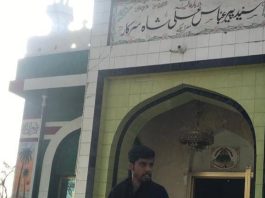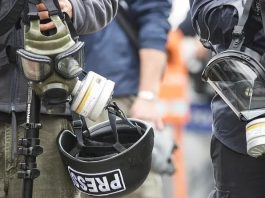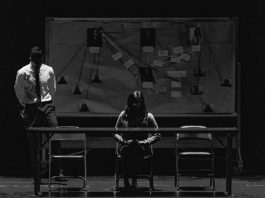
Quetta (by Malik Achakzai / Shahmir Baloch): While the troubled province of Balochistan may have taken the lead in forming a local government, the tricky matter of transfer of power and authority to local bodies will really determine if they can deliver, say local government representatives.
The beginning of 2015 saw the troubled province completing the local body election process across 635 union councils, 32 district councils, 53 municipal committees, four municipal corporations and one metropolitan corporation in Balochistan.
Dr. Kalimullah, the newly elected Mayor of Quetta Metropolitan corporation told News Lens that Quetta was actually planned for 70 thousand to a hundred thousand people after the deadly earthquake of 1935 whereas its current population was more than 30 hundred thousand.
“The previous local government never considered the problems of potable water, sanitation, traffic, building codes, parking, bus service, education, electricity, health and others,” he said.
Kalimullah said the power and authority of the locally elected body was yet to be discussed with the provincial government: “The more we have, the more would be its outcome. I know and am hopeful that the provincial and federal government would support the local government to rebuild Quetta as a model city like Lahore and Islamabad are.”
He added that the local government would focus on mega projects for drinking water, under passes, fly overs, traffic signals, enforcing building codes as Quetta is in seismic zone, gas, electricity, sanitation plans etc.
“These will be discussed with the intelligentsia to prioritize projects,” said Kalimullah.
He said the local government would invest in productive and sustainable projects and people of the city will be provided with basic necessities. “Quetta’s development is my mission,” said Kalimullah.
The Provincial Election Commissioner Syed Sultan Bayazeed told News Lens that only 8 districts committees, 11 municipal committees and 1 municipal corporation did not elect their mayor, deputy mayor and chairman, deputy chairman owing to an incomplete quorum. Out of 635 Union Councils, some 601 elected their 1202 chairmen and deputy chairmen.
The Quetta Metropolitan Corporation and 1,448 chairmen and deputy chairmen of local councils were to be elected in the final phase. “This included 2332 women, 743 minority members, 725 each peasant and labor 7190 on general seats councilors were part of the electioneering process as electoral college”, said Bayazeed.
Among the local government plans are introducing buses for local transportation to make it travel sophisticated and pollution free. Parking spaces for public transport will be moved out of the city.
“The importance of local bodies elected government cannot be over-emphasized,” Senator Dawood Khan Achakzai told News Lens. “Democratic countries provide services to people on their doorsteps but in Pakistan local bodies or local leadership is never appreciated.”
Achakzai said though the provincial government had elected local bodies but it was not prepared to hand-over power to local representatives. He said delay tactics were used by the Balochistan provincial government to elect local mayors, deputy mayors and chairmen, deputy chairmen in 8 districts.
“The opposition parties are not in majority so the only option they have is to go to the court against the Balochistan government if it further delays local bodies formation and their funding and power,” said Achakzai.
Nasrullah Khan Zairi, a member of provincial assembly belonging to the Pashtunkhwa Milli Awami Party told News Lens: “Our government has set aside enough funds for local government activities in the province.We hope the international donors and the federal government can provide extra funds to provincial government that could be allocated to the elected bodies. The local bodies are limited by areas and population, so they would be provided with funds in accordance to the population of their different constituencies”.
Abida Khan Kakar,38, a woman social activist from Quetta expressed doubts that the local bodies would deliver services to the masses as the provincial and federally elected MNAs and MPAs would never share funds and power with local bodies.
“In Pakistan in general and in Balochistan specifically, elected MPAs, MNAs and Senators want to rule the province and masses forever,” she said. “Female members are given quotas in funding but they won’t have any say in spending public resources. No woman has been nominated as a mayor or deputy mayor, chairman or deputy chairman in the entire province. They are nominally selected on quota basis because the constitution allows them this otherwise they would not have any presence in the local government. Same is the case with non-Muslim or minority quota.”
Kakar said that although General Musharraf was a military dictator, his government had powerful local government institutions when the executive and the police were under the mayor and deputy mayor.
“They had access to funds and women were given a larger share in the local government seats,” said Kakar. “I can safely say that today half of the provincial assembly members are a product of that system as they were encouraged to be public representatives. But the laws have been changed and local bodies are not considered independent in their constituencies.”
Haji Surat Khan Kakar, elected deputy chairman of Pishin district, is concerned about the “lack of authority on part of local bodies.”
“If we [local bodies] are given authority and power including budget, we will surely provide basic facilities of health, education, drinking water, sanitation etc,” he said. “Pishin is a large district and far flung areas and villages needs basic human needs. We should invest our resources and energies helping people in remote areas.”
The Provincial Election Commissioner Sultan Bayazeed told News Lens that the local bodies could not generate funds of their own, which made them dependent on the provincial government for resources.
“There are no public toilets in Quetta city for a population of 30 million people, no arrangements for liquid and solid waste management, hospitals and education institutes are not completely functional around the province and the law enforcement agencies bemoan the absence of local support,” Hafiz Rehmat Khan, a civil society activist told News Lens. “I think if local bodies are given a chance, they can surely monitor policing, health, education, and deliver services to the masses.” .
Hafiz Rehmath Khan said immunization campaigns, interfaith and religious harmony gatherings, campaigns against gender based violence, child abuse, safety of minorities, better coordination with law enforcement agencies [Police] and awareness campaigns through local bodies can be launched across the province.
“The elected members are very close to the people and are elected from specific areas; they know their localities well and understand peoples’ need better than any other institution,” said Khan.
Shah Muhammad Dotani, 33, an MPhil student at the Area Study Center in the University of Balochistan, told News Lens that he was hopeful that the provincial and federal government would share power with the locally elected bodies.
“Balochistan government did a brilliant job by electing the local bodies when the rest of the provinces are still dragging their feet,” he said. “I am sure they [provincial government] will respect peoples’ will and provide services to the people through the locally elected bodies, otherwise people will not vote for the parties in the present coalition government again.”
Balochistan is the first among four provinces to form its locally elected government bodies. Punjab, Sindh and Khyber Pashtunkhwa have still not announced the local elections in their provinces.
The other three provinces of Pakistan, Sindh, Panjub and Khyber Pakhtunkhwa are yet to follow the Supreme Court of Pakistan’s verdict under which elections should be held within a year across Pakistan.
The first phase of local bodies’ elections was held on December 7th, 2013 in 32 districts of Balochistan followed by polls for reserved seats for peasant, social workers, minorities and women. There were total 7,190 general seats, five percent for minority, 33 percent women and five percent labourer and peasant.
“The province should get credit for holding elections and ensuring smooth transfer of powers to grassroots so that the issues of the people are addressed at their door steps,” said spokesperson for Balochistan government, Jan Mohammed Buledi.
The turn-out during general elections 2013 was more than 40 percent in parts of Balochistan. However, hundreds of general seats are lying vacant in insurgency hit districts—Turbat, Panjgur, Gwadar, Awaran, Washuk and Khuzdar. “The turn-out in those areas were around three percent,” said Syed Sultan Bayazeed.
According to documents available with News Lens, as many as 357 general seats, 514 reserved seats for minority, 152 reserved seats for peasant and social workers are lying vacant in insurgency hit districts.
Despite all odds, the Election Commissioner Balochistan said the province held local government elections more efficiently than the General Elections 2013: “Balochistan is the most troubled province in the country but elections of local bodies were held in a relatively peacefully environment,” he said.
Shahzada Zulfiqar, a Quetta based journalist, said the job of elected members of Balochistan Assembly and Pakistan National Assembly was legislation and it was almost difficult for the common people to approach them for everyday problems like the construction of roads and street lights.
“This is why it is necessary to have the local government address the basic issues of the common people,” he said.



